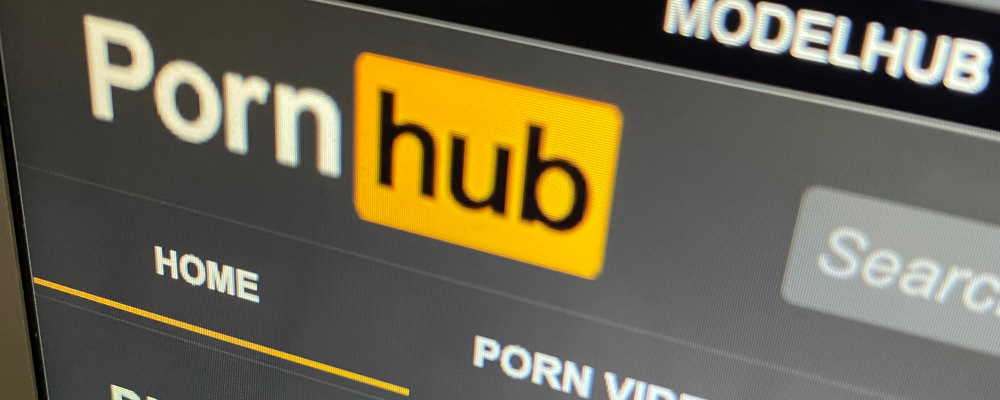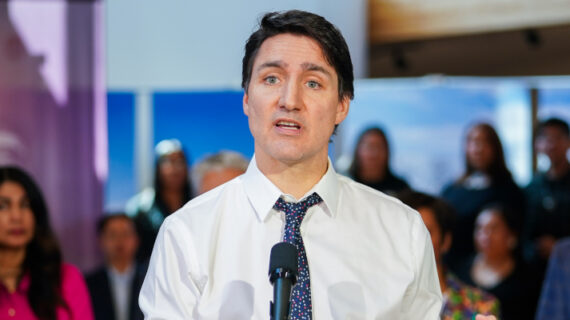The biggest porn company in the world—by a country mile—is owned and operated in Canada. But Canadians can be forgiven for not knowing. To know, you’d have to know that Pornhub, and other big names in porn production and streaming like Brazzers, RedTube, and YouPorn are all owned by MindGeek. You’d have to know that MindGeek was bought and is now owned by the recently founded and euphemistically named Ethical Capital Partners. You’d have to be able to parse the messaging Ethical Capital Partners pushed during its acquisition of MindGeek (and which most of the media spat back out whole) about “unlocking value through ethics-first investing” and the “social value” in hosting and moderating “sex-positive expression between consenting adults”. To parse that messaging, you’d have to dig deeper to uncover the truth about the global porn industry: that it causes harm, that it can never be ethical, and that the least we can do is limit its negative impact on children.
In February of 2021, Canadian members of Parliament sought to dig a little deeper themselves. They asked MindGeek executives to appear before a Parliamentary committee after New York Times reporter Nicholas Kristof published “The Children of Pornhub,” an explosive account of abuse and exploitation of underage and non-consenting women and girls. His feature jarringly woke people up to the horrors of online porn, horrors that some had been ringing alarm bells about for years. After Kristof’s story ran, credit card companies pulled their services from the site, forcing MindGeek to remove millions of exploitative and harmful videos. And while victim groups organized around the world to push for more action, beyond the Canadian committee study and the meagre media attention it got, there wasn’t really any.
Now, finally, in American state legislatures, that’s starting to change. In Louisiana, Arkansas, Montana, Mississippi, Utah, Virginia, and Texas, legislators are passing basic age-verification laws with bipartisan support requiring that porn sites go to reasonable lengths to make sure kids aren’t accessing their content. And it’s working. In some states, Pornhub isn’t offering any content at all, and in Louisiana, their compliance has meant that traffic to the site has dropped 80 percent. As Politico detailed earlier this month, the movement to age-gate porn in the U.S. has been driven by a politically-diverse group of activists (from radical feminists to social conservatives) who believe the amount and nature of pornographic content online today and the ease with which children can access it is having a terrible impact on their developing minds.
For these activists, it’s not enough that the porn industry claims to be taking a tougher stance on content that crosses consent boundaries (something they only did when faced with their own annihilation), it’s that porn is bad for people, and it’s especially bad for young people. This kind of moral language may be difficult for Canadian legislators to wrap their heads around. After all, it was our current prime minister’s highly clip-able father who said there was “no place for the state in the bedrooms of the nation”. But this new American legislation is limiting itself to restricting content for under 18-year-olds, making the basic point that we can’t live-and-let-(kids)-live. Even Trudeau senior would concede that the state has an important role to play in protecting minors, especially given the new role the internet plays in disseminating harmful content.
Politicians and policy experts around the world are grappling with online content, the advertising revenue that powers its generation, and the algorithms that serve it up to smartphone-connected audiences. Researchers are only recently learning that the combination of smartphones, social media, and the frequency of their use have a potent impact on young minds, tying the proliferation of their use to serious Gen Z mental health challenges.
Canada’s Liberals have so far chosen to focus on restricting harmless adult content via their poorly received Bills C-11 and C-18, but they’ve also indicated they intend to table another piece of legislation to protect Canadians from online harms. Given feedback from their consultations, and their apparent instinct to police adult political speech, rather than protect minors from truly harmful content, it’s reasonable to be skeptical of what the bill will look like.

On the other hand, it could be an opportunity. Conservative Members of Parliament with a socially conservative instinct to protect young people from over-sexualization and New Democrat Members of Parliament with a progressive instinct to limit the proliferation of content that is inherently exploitative could team up, as they did at the 2021 Parliamentary Committee, and push the government to focus its online harms bill on age-gating online pornography websites, using successful American legislation as a model.
There will no doubt be some opponents to an initiative like this in Canada. Pragmatists will say that kids could use VPNs or access darker parts of the web to see porn. Some free speech proponents will defend the rights of “content creators” and “artists” to make graphic porn and ensure it’s accessible to children. Indeed, since the acquisition of MindGeek its owners have shown incredible hubris, going so far as to demand an exception from Bill C-11, stating that “as elemental as explicit adult entertainment is to the human condition, it is not an expression of Canadian cultural identity that Canadians expect the federal government to protect”.
No, indeed. But if government were to limit access to porn to adults, they would no doubt find a receptive public, making it a political slam dunk. And by limiting the volume of and ease with which children can access harmful content online, they might just make it a little easier to be a kid, making it a public policy slam dunk too.




